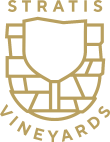Andros

Andros
Andros is the northernmost island of the Cyclades, marked by many variations and contrasts. Under the vast light of the Aegean, surrounded by pristine emerald waters, it has shores that are long or short, some with pebbles and sand and others wild with steep cliffs. A unique feature, in contrast to other Cycladic islands, is its many tall mountains and its abundant underground and surface waters.
Four large mountain ranges traverse Andros diagonally, from west to east, with consecutive folds. In its rocky cliffs and gorges, the landscapes are rugged, yet in the valleys and streams, they're gentle, with springs pouring ample waters and lush vegetation. The mountains of Andros include rocks with many metallic elements. Mostly they are limestone, granite, but schist rocks prevail. Schist rocks offer the possibility of extracting and carving thin flat slates. The abundant stone material contributed to honing the skill and intellect of the island's inhabitants.
Timeless stone constructions allow us to witness elements of the social life of the people from ancient times (Strophilas 4500-3200 BC). Builders and craftsmen, working with wood and stone, constructed castles, houses, cells, churches and monasteries, pigeon houses, watermills, olive presses, intricate fountains, cobbled paths, and bridges, along with many other functional buildings, crafted with inspired improvisation, wisdom, and measure, mostly untouched by time, cultural elements of our tradition and our life.
Throughout the island, endless measures of dry-stone walls enclose properties and separate them. In constructing these walls, for time and stone economy, they intermittently placed upright, large flat slabs, called "stigmata". Double rows define the boundaries on old and new roads, paths, and cobbled pathways. The certified hiking network on the traces of Andros' ancient paths is considered one of the most attractive hiking destinations in the world.
Stone craftsmen, responding to the essential needs of their society, transformed the steep slopes into tiered terraces, the “terraces”, faithfully following the slope of the land, literally "creating" arable land. Most of the island has been continuously cultivated for many centuries. Andros is one of the most fertile islands of the Cyclades. The advanced agricultural activity of the inhabitants always provided self-sufficiency in products and a wide variety of tasty and aromatic ingredients. From ancient times, products such as oil, honey, citrus fruits, silk, raki, wine, and others were exported.
The Aegean sun, the Cycladic air, and the significant altitude differences create a remarkable microclimate and a rich flora and fauna, which is the great treasure of the island.

